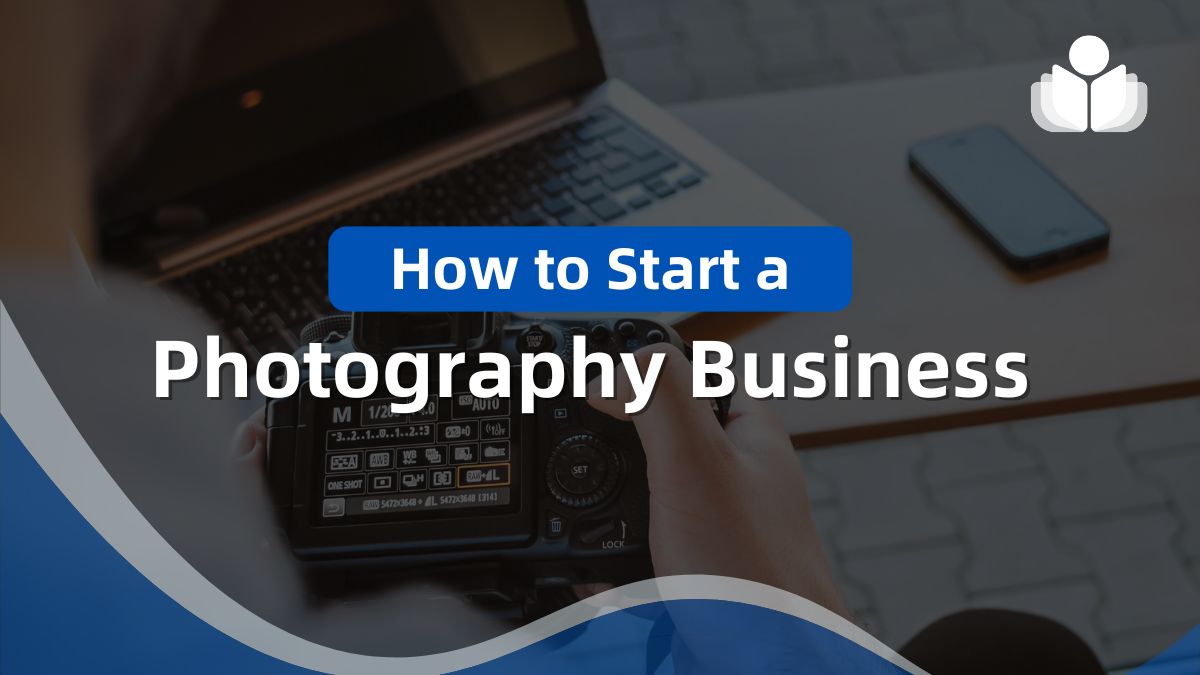Professional photography is in high demand as individuals and businesses seek high-quality visuals for personal and commercial needs. Starting a photography business is an excellent opportunity for creative entrepreneurs to turn their passion into a profitable venture.
It offers flexibility to work on your terms, the creative freedom to explore your artistic style, and significant income potential. Whether you specialize in weddings, portraits, or commercial photography, this business can be both fulfilling and financially rewarding.
1. Research and Planning
Starting a photography business requires a solid foundation. Thorough research and planning will help you position your services effectively in the market.
- Identify Your Niche: Determine your area of focus, such as wedding photography, portraits, product photography, real estate photography, or event coverage. Choosing a niche allows you to tailor your skills and services to a specific audience, helping you stand out from competitors.
- Conduct Market Research: Analyze your target audience to understand their needs and preferences. Study competitors to identify their strengths and weaknesses, and research local pricing trends to set competitive rates. Assess the demand for your chosen niche in your area to ensure profitability.
- Create a Business Plan: Develop a comprehensive plan outlining your services, pricing structure, and financial goals. Include strategies for marketing and acquiring clients and plans for scaling your business as demand grows. A well-thought-out business plan serves as your roadmap to success.
2. Building Your Skills and Portfolio
Developing your photography skills and creating a compelling portfolio are essential steps to attract clients and establish credibility in the industry.
- Invest in Photography Training: Enhance your technical and creative skills by attending workshops, online courses, or mentoring sessions. These resources can help you master camera settings, lighting, editing, and other essential aspects of photography.
- Build a Portfolio: Showcase your talent by creating a diverse portfolio highlighting your expertise in your chosen niche. Initially, offer free or discounted sessions to gain practical experience and gather high-quality work samples. A strong portfolio is your most powerful marketing tool.
- Stay Updated: Stay informed about the latest photography trends, techniques, and equipment. Keeping up with advancements ensures your work remains relevant and competitive, helping you effectively meet client expectations.
3. Registering Your Business
Registering your photography business establishes it as a legitimate entity, protects your assets, and builds client trust.
- Choose a Business Name and Structure: Choose a unique and professional name that reflects your brand identity. Based on your financial and liability preferences, decide on the legal structure for your business, such as a Sole Proprietorship, LLC, or partnership.
- Obtain Necessary Licenses and Permits: Register your business name with local or state authorities and ensure zoning and tax regulations compliance. You may need a general business license to operate legally, depending on your location.
- Secure Insurance: Protect your business and equipment with general liability insurance. This coverage safeguards you against potential risks, such as property damage or accidents during shoots, and gives clients confidence in your professionalism.
4. Investing in Equipment
Equipping yourself with the right tools is critical to delivering high-quality photography services. Investing in reliable gear and maintaining it properly ensures consistent performance and professional results.
- Purchase Essential Gear: Start with the basics: a quality camera, versatile lenses, a sturdy tripod, reliable lighting equipment, and professional editing software. These core tools are needed for most types of photography and provide the foundation for your work.
- Consider Specialized Equipment: Depending on your niche, invest in specialized tools such as drones for aerial photography, studio backdrops for portrait sessions, or macro lenses for close-up product shots. These additions can help you expand your offerings and meet unique client needs.
- Regular Maintenance: Clean and service your equipment regularly to keep it in top condition and avoid unexpected malfunctions during shoots. Proper maintenance extends the life of your gear and ensures your tools are ready whenever inspiration strikes or a client calls.
5. Setting Up Your Business Operations
Efficiently managing your business operations ensures smooth workflows, professionalism, and client satisfaction. Clear pricing, contracts, and organization are key to establishing trust and reliability.
- Define Your Pricing: Set competitive pricing that reflects your niche, expertise, and market demand. Offer tiered packages tailored to your target market, such as basic, standard, and premium options. Transparent pricing helps clients choose the services that best suit their needs.
- Develop Contracts: Draft comprehensive contracts that clearly outline the scope of work, payment terms, delivery timelines, and photo usage rights. Contracts protect both you and your clients by setting clear expectations and minimizing disputes.
- Organize Scheduling and Payments: Invest in management software to streamline bookings, track appointments, and handle invoicing. Tools like client relationship management (CRM) systems simplify communication and keep your business organized, saving you time and effort.
6. Marketing Your Photography Business
Marketing is essential to attracting clients, building your brand, and establishing a strong reputation. Combining online and local strategies will maximize your reach and visibility.
- Build an Online Presence: Create a professional website showcasing your portfolio, services, pricing, and contact information. Maintain active social media profiles on platforms like Instagram, Facebook, and LinkedIn to share your work, client testimonials, and behind-the-scenes content. A strong online presence establishes credibility and draws potential clients.
- Network Locally: Form partnerships with event planners, wedding venues, makeup artists, or local businesses that can refer clients to you. Attend community events or networking meetings to connect with potential collaborators and build a referral network.
- Leverage Referrals: Encourage satisfied clients to refer your services to friends and family by offering discounts or incentives. Positive word-of-mouth and glowing reviews on platforms like Google or Yelp can significantly enhance your reputation and attract more clients.
7. Managing Your Business
Efficient management is key to running a sustainable photography business. You can build long-term client relationships and ensure smooth operations by staying organized and focused on quality.
- Handle Finances: Use accounting tools to track income, expenses, and taxes. Proper financial management helps you monitor profitability, growth plan, and avoid legal or tax-related issues.
- Deliver High-Quality Results: Maintain a reputation for excellence by delivering edited photos promptly and ensuring they meet or exceed client expectations. Consistent quality and reliability are crucial for client satisfaction and repeat business.
- Collect Feedback: Request client testimonials to showcase your work and build credibility. Take constructive criticism positively to refine your services and enhance customer experience, making your business more competitive.
8. Scaling Your Photography Business
Scaling your photography business allows you to reach a broader audience, increase revenue, and establish a stronger presence in the market. Thoughtful expansion ensures sustainable growth while maintaining quality.
- Expand Your Services: Diversify your offerings by adding services like videography, photo editing workshops, or selling prints and albums. Catering to a wider range of client needs can enhance your revenue streams and attract new customers.
- Hire Assistants or Second Shooters: As your business grows, bring in assistants or second shooters to manage larger events, multiple bookings, or complex shoots. A team allows you to take on more work without compromising on quality or deadlines.
- Invest in Marketing: Boost your visibility by using paid ads on platforms like Google or social media. Enhance your website’s SEO to rank higher in search results, attracting high-value clients. A strategic marketing plan can help you reach your target audience effectively and grow your client base.
Conclusion
Starting a photography business is a rewarding way to combine creativity and entrepreneurship. By defining your niche, honing your skills, and setting up efficient operations, you can establish a solid foundation for success. Prioritize organization and build strong client relationships to ensure long-term growth.
With passion and dedication, your photography business can bring both artistic fulfillment and financial success. Start your journey today and turn your vision into reality.
 Sections of this topic
Sections of this topic
















